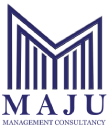Table of Contents
Overview: Why Start a Supermarket in Bahrain
Bahrain’s retail sector has been expanding steadily due to rising consumer demand, expatriate population, and government-led initiatives to promote private enterprise. With easy access to GCC markets, world-class infrastructure, and full foreign ownership under Bahrain’s commercial laws, launching a supermarket here is both profitable and strategic.
From hypermarkets in Manama to community convenience stores across Muharraq, the retail environment supports investors looking for long-term growth in the FMCG and grocery sectors.
Step 1: Market Research & Feasibility Study
Before applying for licenses, conduct a detailed study of:
- Local buying habits and competition (brands like Lulu, Carrefour, Al Osra).
- Product preferences — imported goods, organic sections, and frozen foods.
- Average store size and daily footfall in target areas.
A feasibility study helps estimate startup costs, profit margins, and break-even timelines, enabling better financial planning before registration.
Step 2: Choosing the Right Business Structure
Bahrain allows several legal structures under the Ministry of Industry and Commerce (MOIC):
- With limited liability (W.L.L.) — ideal for small to mid-sized supermarkets.
- Single Person Company (SPC) — suitable for solo foreign investors.
- B.S.C (Closed) — for larger supermarket chains.
Foreign investors can own 100% of the business in most retail categories, making Bahrain one of the most liberal retail markets in the GCC.
Step 3: Legal Requirements & Licensing
To open a supermarket in Bahrain, you’ll need:
- Commercial Registration (CR) from MOIC.
- Municipality License (for location approval and layout compliance).
- Health and Safety Certificate (especially for perishable food sections).
- Fire and Civil Defense Approval.
MajuBiz assists investors through every licensing stage — from CR approval to post-launch compliance — ensuring your business meets Bahrain’s legal standards.
Step 4: Location & Commercial Space Approval
Selecting the right retail space is crucial. Ideal supermarket locations include:
- High-footfall zones such as Seef, Juffair, and Riffa.
- Proximity to residential clusters or schools.
- Ample parking and easy delivery access.
Once selected, your commercial space must be inspected and approved by local authorities before operations commence.
Step 5: Investment & Financial Planning
The initial investment depends on store size, interior fit-outs, refrigeration units, and licensing fees.
Key expenses include:
- Commercial rent and deposits.
- Interior and cold-storage setup.
- Point-of-sale systems.
- Supplier contracts and logistics setup.
MajuBiz helps investors estimate costs through its Business Setup Cost Calculator, allowing clear budgeting for both small and large-scale supermarket operations.
Step 6: Inventory, Suppliers & Distribution
Reliable supplier partnerships are essential for continuous stock flow.
You can source:
- FMCG distributors in Bahrain.
- Direct imports from Saudi Arabia or the UAE.
- Local organic and specialty product suppliers.
Bahrain’s logistics network, including Khalifa Bin Salman Port and the King Fahd Causeway, enables seamless import and distribution operations.
Step 7: Hiring Staff & Operations Setup
Supermarkets in Bahrain typically employ:
- Store managers and cashiers.
- Warehouse and delivery personnel.
- Cleaning and maintenance staff.
All employees must be registered under LMRA (Labour Market Regulatory Authority), and foreign staff require valid work visas. MajuBiz can facilitate visa applications and staffing compliance.
Step 8: Tax Registration & Compliance
Bahrain has no corporate or income tax on most business activities, but supermarkets must:
- Register for VAT (currently 10%).
- Maintain proper accounting and annual financial records.
- Comply with Anti-Money Laundering (AML) and consumer protection laws.
MajuBiz offers accounting, VAT filing, and annual compliance services to keep your retail operations fully aligned with Bahrain’s tax regulations.
FAQs
1. Can foreign investors open a supermarket in Bahrain?
2. What licenses are required to operate a supermarket?
3. How long does it take to start a supermarket in Bahrain?
4. What is the VAT rate for supermarkets in Bahrain?
5. Can I import products directly from other GCC countries?
Conclusion
Starting a supermarket in Bahrain is one of the most promising retail ventures in the Gulf region. With MajuBiz’s 14+ years of expertise in business setup, licensing, and tax compliance across GCC markets, your retail business can launch seamlessly and operate with full legal confidence.
Start your business in Bahrain today – contact MajuBiz to turn your retail vision into reality

